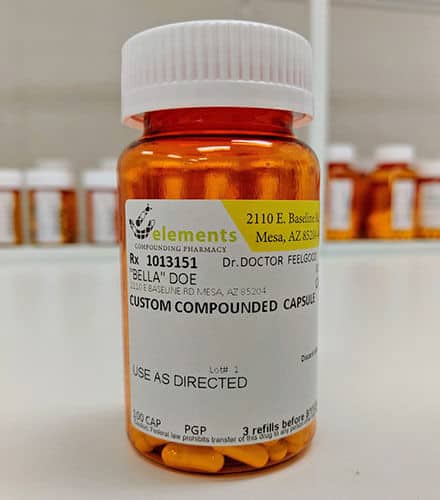fenbendazole capsules: Effective Options for Parasite Control
Recognizing the Advantages and Uses of Fenbendazole in Veterinary Medication
Fenbendazole has established itself as an essential anthelmintic in vet medicine. Its ability to target numerous parasitical infections makes it a valuable tool for vets. The drug's mechanism disrupts important mobile processes in bloodsuckers, resulting in effective treatment end results. Its safety profile varies between types, requiring cautious factor to consider in its usage (fenbendazole capsules). Understanding these characteristics can drop light on fenbendazole's broader ramifications in vet treatment and recurring study right into its prospective beyond typical applications
Device of Activity of Fenbendazole

Common Parasitical Infections Treated With Fenbendazole
A range of parasitical infections are successfully treated with fenbendazole, making it a flexible choice in veterinary medicine. This anthelmintic agent is specifically efficient against nematodes, consisting of roundworms and hookworms, which typically impact pet dogs and pet cats. It is also used for the treatment of cestodes, such as tapeworms, offering a wide spectrum of action versus both types of digestive bloodsuckers. Additionally, fenbendazole is useful in handling infections caused by protozoa, specifically Giardia, which can lead to stomach distress in animals. Its efficiency prolongs to dealing with specific lungworms in dogs and felines, attending to breathing health problems connected to these bloodsuckers. Generally, fenbendazole's ability to target multiple parasitic types makes it a beneficial tool in vet technique, making sure the health and health of pets impacted by these usual infections.
Safety and Effectiveness in Various Pet Species
The security and efficiency of fenbendazole vary amongst various pet types, highlighting the importance of species-specific considerations in veterinary medication. In pooches, fenbendazole is generally well-tolerated and effective versus a series of gastrointestinal bloodsuckers, consisting of roundworms and hookworms. For felines, nonetheless, its usage is less common and may require mindful application because of potential unfavorable reactions.
In livestock, such as livestock and sheep, fenbendazole demonstrates efficiency against numerous endoparasites, contributing to improved health and productivity. Nevertheless, the pharmacokinetics and prospective side impacts can differ markedly between species, necessitating cautious assessment by veterinarians.
Horses additionally react favorably to fenbendazole, specifically for treating strongyles and ascarids, though dosage Resources and administration look at here now courses must be customized to their special physiology. Consequently, comprehending these differences is essential for optimizing treatment outcomes and making sure animal welfare across diverse varieties.
Administration and Dosage Standards
Proper administration and dosage standards are crucial for making the most of the healing results of fenbendazole while minimizing prospective negative effects. The dosage typically varies depending upon the types being treated, the specific problem, and the formulation of fenbendazole made use of. fenbendazole 222. For pets and pet cats, an usual dosage is 50 mg/kg body weight, provided once daily for three successive days, however veterinarians may readjust this based on private wellness evaluations
It is very important to provide fenbendazole with food to boost absorption and minimize intestinal trouble. The drug is available in different forms, including granules and paste, allowing for adaptable management alternatives. Keeping an eye on the pet's action throughout and after therapy is a good idea to verify efficacy and security. Additionally, veterinary advice is essential to determine the ideal period of treatment based on the kind of parasitic infection being resolved, assuring excellent outcomes for the animal's wellness.
Future Point Of Views and Study on Fenbendazole
Research study on fenbendazole remains to advance, concentrating on its prospective applications past standard antiparasitic uses. Recent research studies have discovered its effectiveness in dealing with different kinds of cancer, particularly in vet oncology. Initial data recommend that fenbendazole might hinder the development of lump cells and improve the results of various other chemotherapeutic agents.
Additionally, scientists are examining its function in taking care of gastrointestinal disorders in pets, highlighting its anti-inflammatory buildings. The adaptability of check my source fenbendazole for various species questions concerning its security accounts and ideal application programs in diverse populaces.
As rate of interest grows, there is a requirement for comprehensive scientific tests to establish evidence-based standards for these novel applications. Future research study might also examine the devices behind fenbendazole's effects, potentially leading the way for innovative healing approaches in veterinary medicine. The continuous exploration of fenbendazole might greatly enhance treatment options for various vet problems.

Frequently Asked Concerns
Is Fenbendazole Safe for Pregnant Animals?
The security of fenbendazole for expectant animals remains uncertain. While some researches suggest very little threat, vets usually recommend caution and usually discourage its usage while pregnant unless the advantages plainly surpass potential dangers.
Can Fenbendazole Be Made Use Of in Livestock?
Fenbendazole is frequently used in livestock to deal with numerous parasitical infections. 222 mg. Its effectiveness against stomach worms makes it an important anthelmintic, contributing to enhanced health and wellness and efficiency in pets increased for food and fiber
What Are the Side Impacts of Fenbendazole?

The side results of fenbendazole may include intestinal disruptions, sleepiness, and allergies. In uncommon situations, a lot more severe responses might take place, requiring cautious monitoring and examination with a vet during therapy.
Exactly How Does Fenbendazole Compare to Other Dewormers?
Fenbendazole provides broad-spectrum efficacy against various parasites, frequently comparing positively to other dewormers. Its special mechanism targets different life stages, making it reliable, while generally presenting a favorable security profile compared to choices offered on the marketplace.
Can Fenbendazole Be Utilized for Treating Cancer Cells in Animals?
The capacity of fenbendazole in dealing with cancer in animals has garnered passion. Initial research studies suggest it might prevent cancer cells cell growth, but better research is necessary to validate its efficacy and safety and security in vet oncology.